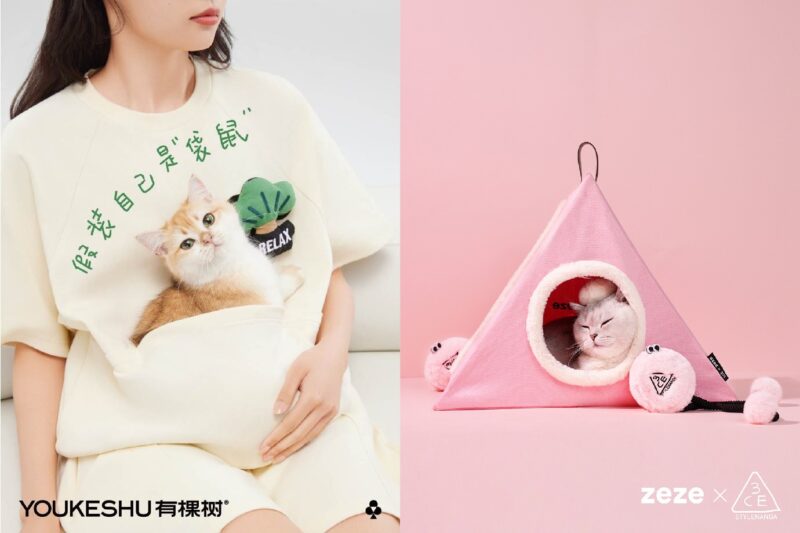Key takeaways:
- Chinese dairy brand Mengniu released a short film entitled “Same-aged Mum” in celebration of Mothers’ Day.
- The film redefined mothers’ ages which are counted from the birth of a baby and makes mothers the same age as their children.
- Instead of following the traditional approach of depicting mothers as “devotees”, the campaign normalised the role of a mother, which attracted over 360 million views on Weibo.
A short film released by Mengniu, a Chinese dairy unicorn, has struck a chord on China’s digital sphere on the recently concluded Mother’s Day. Entitled “Same-aged Mum”, it introduced a tagline that redefines mothers’ ages which are counted from the birth of a baby and makes mothers’ ages the same as their children’s. Building the story around a child’s age, it is the mother’s physical and psychological changes that are at the heart of the film.
The short film skilfully presented the similarities between mothers and their children during the growing process.
A “childish and crazy” mum
From the “one-year-old” mum, who cries just as much as the infant of the same age, and the “five-year-old” mum, who is as much of a picky eater as her five-year-old daughter, to the “16-year-old” mum who is a regular party goer and the mum in her early 20s who shares a love of make-up, the short film skilfully presented the similarities between mothers and their children during the growing process while giving a nod to the campaign slogan.
Unlike the traditional approach of depicting mothers as “devotees”, Mengniu intended to normalise the role of a mother through trivialities that characterise each growing stage of a child. The close-to-life storytelling allows a smooth seeding of its own product – milk, which served as the narrative of the film.

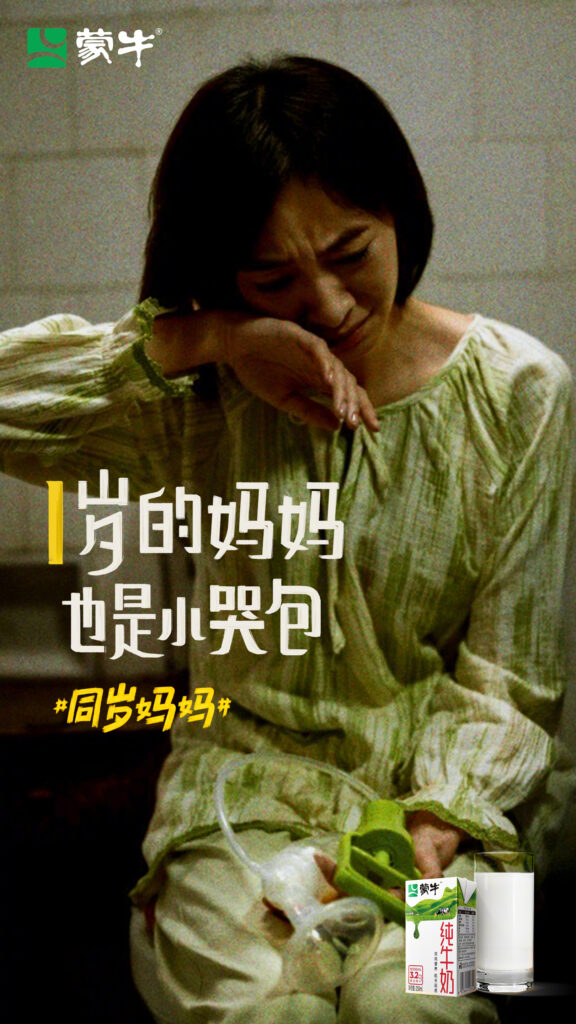


Rather than creating a sentimental tone of voice, the three-minute video saw more jolly moments with the mother’s “childish and crazy” acts, such as sneaking a taste of milk while snacking over TV time and dancing along to karaoke at a birthday party. As such, Mengniu was able to show more diverse aspects of mothers while also bringing the two generations closer by erasing the image of a mother as someone who is elder and more superior but rather a peer and friend who shares the same interests as her child.
Natural and real storytelling
Such storytelling allowed the brand to resonate with the younger generation of parents with some young mums commenting on Mengniu’s post, saying they found the experience of the woman featured in the film relatable. It created an emotional touchpoint between the brand and the wider Gen Z and millennial crowds who praised the concept of the “same-aged mother” and juvenilised the image of mothers.
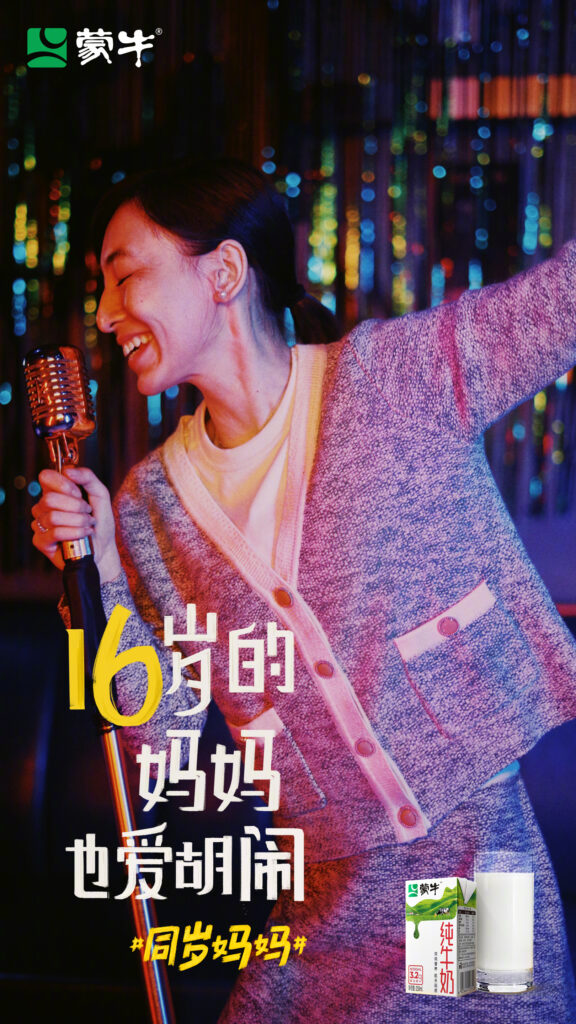
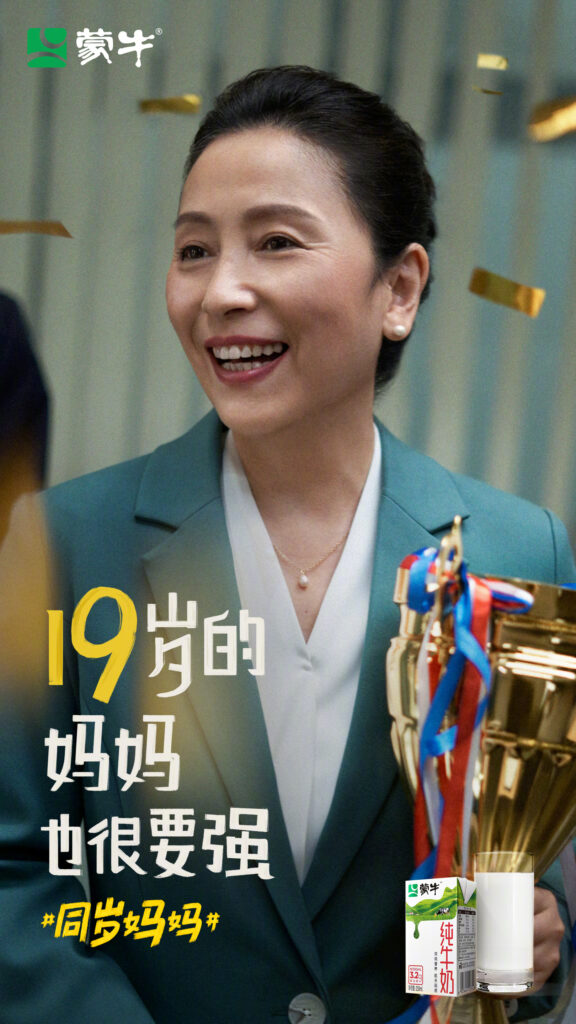
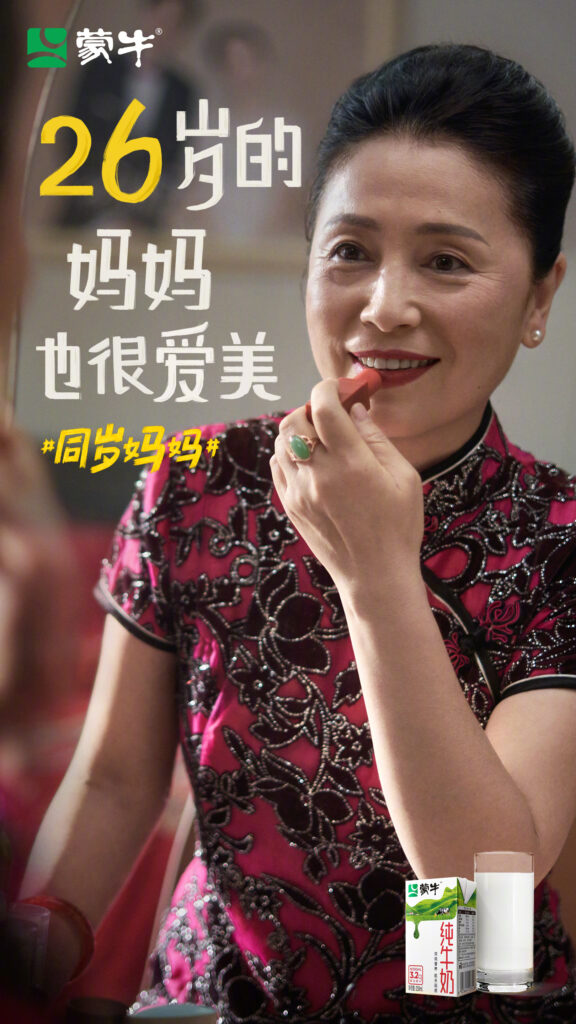
Alongside the release of the short film, Mengniu Dairy also launched a hashtag page dedicated to the campaign on Weibo, China’s equivalent to Twitter. With the production being well received by the public, the hashtag “Same-aged Mother” has drawn in a staggering 360 million views as of 16 May. The endeavour drew in media exposure from more than 40 news outlets, including state-owned Xinhua Net, propelling the short video to garner accumulated views of 4.9 million.
Wang Guan, the presenter of CGTN, also joined the public discussion under the page. Other netizens followed suit by sharing their childhood memories and anecdotes with their mothers, which furthers the online spread of the campaign.
The natural and real picture of mothers can be easily resonated with the young demographics.
By shifting the strategy of glorifying mothers – a practice that is viewed as patronising by the cohorts of Gen Z and millennials – to focusing on the emotional and day-to-day nuances, it brings a more natural and real picture of mothers which can be easily resonated with the young demographics. As a result, Mengniu Dairy is able to set itself apart from other market players during the special campaign seasons while gaining extra brownie points from its target audience by providing a different perspective and voice to the role of mothers.








